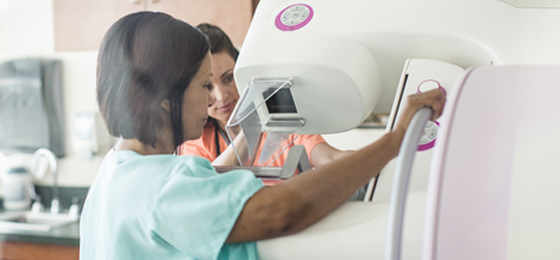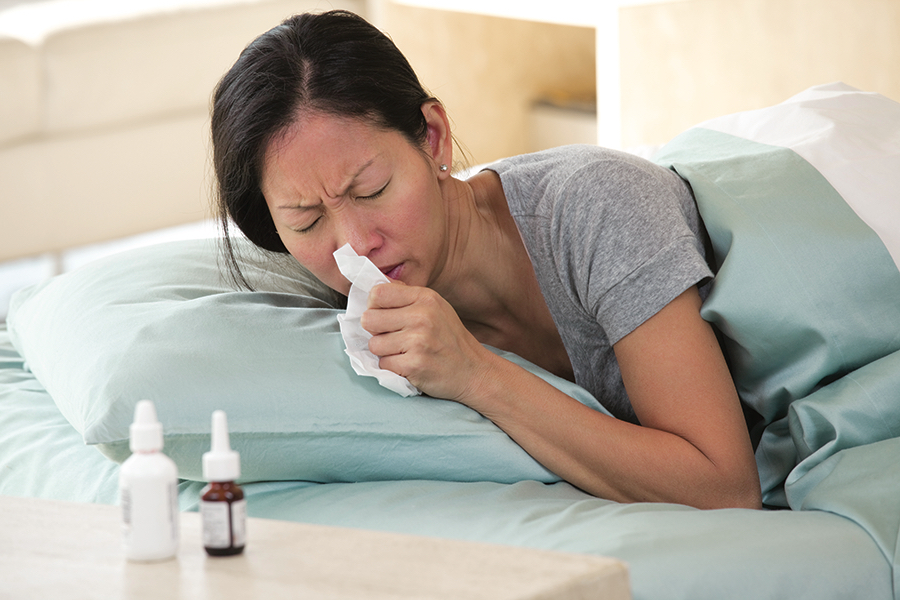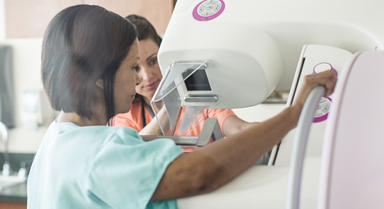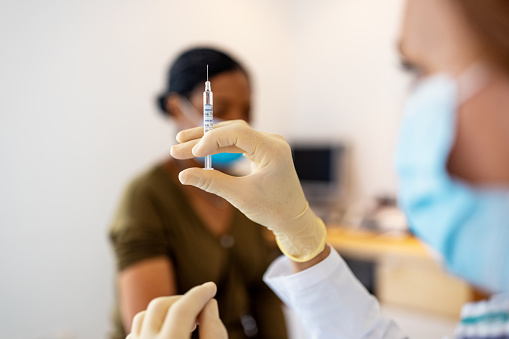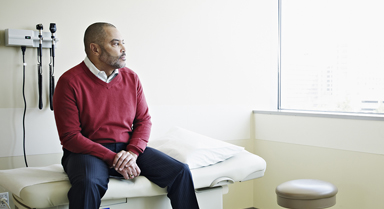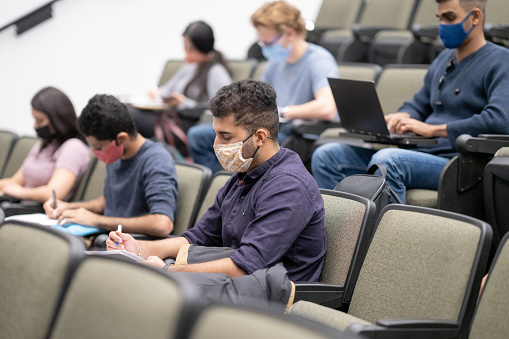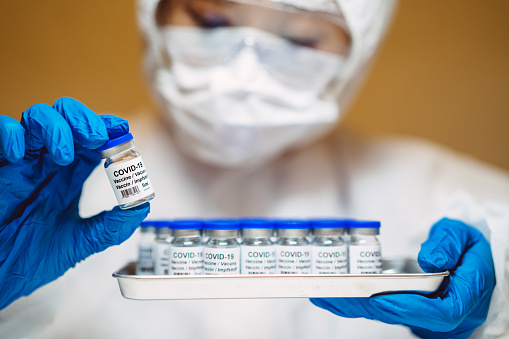Did you know?3
- Breast cancer is the most prevalent type of cancer
- Each year in the United States, about 264,000 cases of breast cancer are diagnosed in women and about 2,400 in men
- Except for skin cancer, breast cancer is the most common cancer in women in the United States
Self-examination
Being aware of how your breasts look and feel and carrying out regular self-examinations can help you identify any changes.1 In front of a mirror, look for any swollen areas or dimples and squeeze the nipple to check for lumps or discharge.4 Then, when lying down or standing in the shower, raise one arm and check the breast and armpit, applying light, medium, and firm pressure.4 If you find a lump or notice any changes in the appearance or feel of your breast, make an appointment with a doctor as soon as possible. Do not wait until your next screening.
While breast cancer is much more common in women, it can also occur in men.
Regular screenings
Regular screenings can help detect breast cancer early. Many women have no symptoms; making screening particularly important. Screenings are usually offered to older women who are more at risk of developing breast cancer.2
Breast screenings usually involve a mammogram, which uses x-rays to check for any abnormalities. An ultrasound may then be used to further check anything found on a mammogram. Doctors may recommend to some younger people that an ultrasound is done before a mammogram.5
Breast cancer is the most common form of cancer in women.3 Less than 1% of all breast cancer cases occur in men.6
Risk groups
The risk of breast cancer increases with age. A history of breast cancer in the family, inherited genes, exposure to radiation, obesity, menstruating early, entering menopause later, and having children later in life or not at all are also thought to increase risks of breast cancer.1 Maintaining a healthy weight, eating well and getting regular exercise can all help to reduce the risk of breast cancer.1
Diagnosis and treatment
Biopsies can be used to diagnose breast cancer. Blood tests, magnetic resonance imaging (MRI) scans, mammograms, bone scans, computed tomography (CT) scans and other tests can help determine its stage.7
Treatment depends on various factors, including the stage of the cancer. Surgery may be recommended to remove the cancer, lymph nodes, or the breast.7 Systemic treatment, such as chemotherapy, radiotherapy, and immunotherapy, may also be recommended.7
If you notice anything unusual in your breast, make an appointment with a provider as soon as possible.
1. Breast cancer: symptoms and causes. Mayo Clinic. https://www.mayoclinic.org/diseases-conditions/breast-cancer/symptoms-causes/syc-20352470. Accessed February 26, 2020.
2. Overview: Breast cancer screening. NHS. https://www.nhs.uk/conditions/breast-cancer-screening/. Accessed February 26, 2020.
3. Basic Information About Breast Cancer. Centers for Disease Control and Prevention. https://www.cdc.gov/cancer/breast/basic_info/. Accessed August 17, 2022.
4. Breast self-exam. National Breast Cancer Foundation, Inc. https://www.nationalbreastcancer.org/breast-self-exam. Accessed March 19, 2020.
5. Ultrasound. Breastcancer.org. https://www.breastcancer.org/symptoms/testing/types/ultrasound. Accessed February 26, 2020.
6. Male breast cancer. National Breast Cancer Foundation, Inc. https://www.nationalbreastcancer.org/male-breast-cancer. Accessed February 26, 2020.
7. Breast cancer: diagnosis and treatment. Mayo Clinic. https://www.mayoclinic.org/diseases-conditions/breast-cancer/diagnosis-treatment/drc-20352475. Accessed February 26, 2020.
This article serves only as a reference and is intended for informational purposes only. Nothing in this article constitutes legal, tax, financial planning, health or medical advice including diagnosis or treatment. Always seek the advice of your physician or other qualified health provider with any questions you may have regarding a medical condition. References to third-party organizations or companies, and/or their products, processes or services, do not constitute an endorsement or warranty thereof. Products and services may not be available in all jurisdictions and are expressly excluded where prohibited by applicable law. All group insurance policies and health benefit plans contain exclusions and limitations. For costs and details of coverage, contact a Cigna representative.
All Cigna products and services are provided exclusively by or through operating subsidiaries of Cigna Corporation, including Cigna Health and Life Insurance Company, Life Insurance Company of North America, Cigna Global Insurance Company Limited, Evernorth Care Solutions, Inc. and Evernorth Behavioral Health, Inc., or through their affiliates and contracted companies.
In the U.S., Cigna Global Health Benefits® group medical and dental plans are insured or administered by Cigna Health and Life Insurance Company. In the U.S. and Canada, group life, accident and disability plans are insured or administered by Life Insurance Company of North America. In Canada, group medical, dental, vision, and evacuation plans are insured or administered by Cigna Life Insurance Company of Canada. Employee Assistance Programs are administered by or through Evernorth Care Solutions, Inc., Evernorth Behavioral Health Inc., Inc. or affiliates and contracted companies. In other jurisdictions, products and services are offered by or through Cigna Global Insurance Company Ltd. or affiliates and contracted companies. Products and services may not be available in all jurisdictions and are expressly excluded where prohibited by applicable law. The information on this site is only a general description of benefits. All insurance policies and group benefit plans contain exclusions and limitations. Please consult your licensed agent or contact Cigna for product availability, costs, and complete details of coverage.

